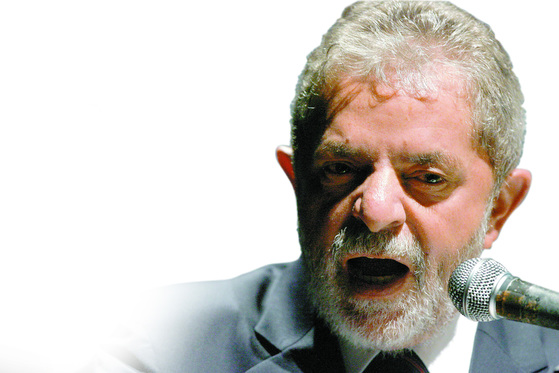
Former Brazilian President Luis Inassiu Lula da Ciuba was all sentenced to be null and void. Central photo
The Supreme Court overturned the existing conviction on the 8th (local time) against former Brazilian President Luis Inassiu Lula da Ciuba, 75, who was imprisoned for bribery. With this ruling, he emerged as a major variable in the next year’s presidential election. According to Guardian Reuters, on the same day, Supreme Court Justice Edson Pachin of the Supreme Court of Brazil invalidated all convictions of the lower court against former President Lula. “The (centrifugal) judgment of the Court of Curitiba was not appropriate,” and the content of the ruling is that the capital Brasilia must be retried.
In 2009, when he was in office, Lula was accused of helping a large construction company win a contract with the state-owned oil company Petrobras and in return for receiving a luxury apartment worth 3.7 million Real (about 720 million won). The investigation began in 2014, and in 2017, after three years, he was sentenced to 9 years and June in prison at the first trial and 12 years and January in prison at the second trial the following year.

Sergio Anvil, former Brazilian Attorney General. When he was a federal judge, he was suspected of giving investigation guidelines to an investigative prosecutor. EPA=Yonhap News
The reversal took place in June 2019, when suspicion of collusion between the investigative prosecutor and the judge arose. At the time, a website called’Intercept Brazil’ revealed text messages from Sergio Anvil as a federal judge of the then attorney general. Intercept Brazil insisted that it was the context in which former Minister Anvil helped prosecutors convict and arrest prosecutors. Former Minister Anvil denied it, but the situation went in favor of Lula, and eventually the Supreme Court of the United States took the court ruling into question.
Brazil’s politics are fluctuating as former President Lula regains his right to be elected by the Supreme Court’s decision. Meanwhile, Lula’s ‘running soon’ formula has emerged as an interest in whether it will work in the next presidential election. The Guardian quoted Brazilian political critic Thomas Trauman, saying, “The presidential election begins again today. It won’t happen,” he reported.
Lula, who succeeded in re-election and ruled Brazil in 2003-2010, was so popular that when he retired, the approval rating reached 83%. If he runs for election, he will be foreseen as a virtually influential candidate against the current president, Zaire Bolsonaro, who is considered a far-right populist politician. According to the BBC, in a poll conducted by Brazilian political consulting firm IPEC on the 7th (local time), former President Lula surpassed President Bolsonaro (38%) with an estimated 50% vote.

Zaire Bolsonaro 38th President of Brazil. EPA=Yonhap News
The reason that former President Lula was loved by the people was because the Brazilian economy grew significantly during the period. The economic growth rate averaged more than 4% per year, and Brazil ranked 7th in the world for its economy. He was criticized for leading the’pink tide’ (left wave) in Central and South America with Venezuela’s former President Hugo Chavez in the early 2000s by implementing strong welfare policies such as the’Fome Zero’ policy that supplies food to the poor.
However, after retirement, negative evaluation also followed. During his presidency, demand for raw materials exploded around the world, and even if it wasn’t Lula, he had no choice but to become wealthy in Brazil, where resources were abundant. In particular, as the international economy slowed down and commodity prices fell, it was criticized for making it difficult for the Brazilian government to handle welfare expenditures as a result.
Born in 1945 in a poor family in northeastern Brazil, Lula was actually raised by a single mother. From the age of seven, he worked as a peanut arm and shoe polisher for a living in the family, and at the age of 14 he got a job in a metal factory. She lost her left little finger in an accident at the age of 18, and suffered a tragedy in which her wife, who was married in a factory, contracted hepatitis while she was pregnant, and died with a baby in her stomach. He led the labor movement while serving as the chairman of the metals union, then jumped into the political scene, served as a congressman, and was elected the 35th President of Brazil in 2003.
Reporter Kim Sun-mi [email protected]
![]()
